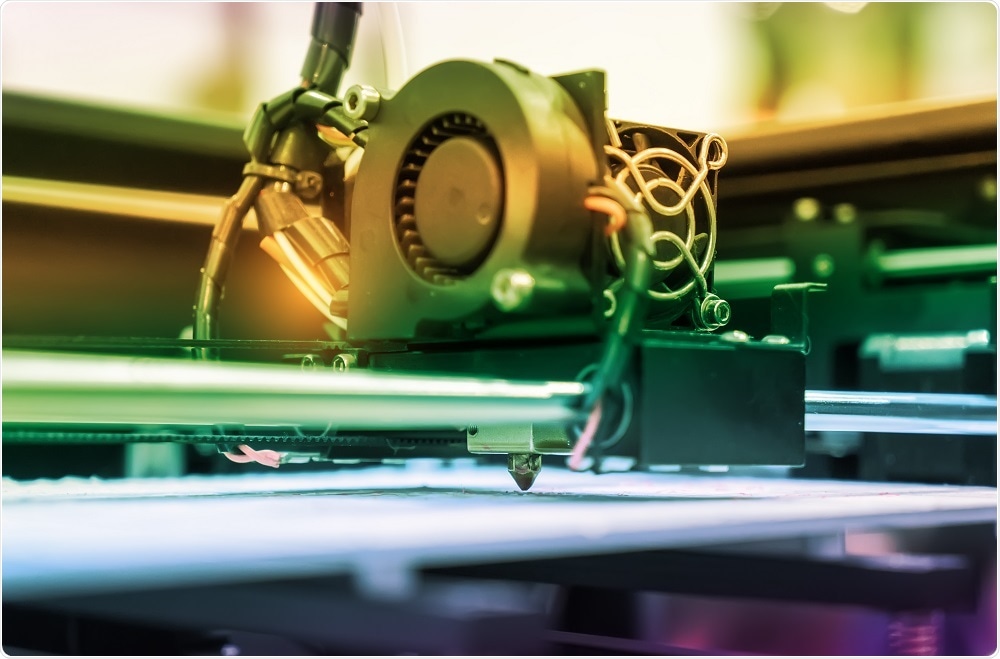Scientists have developed a ground-breaking technology that can print electronics and cells directly onto skin and could be used to provide chemical sensors for soldiers in combat zones and new treatments for skin disorders.

Credit: asharkyu/Shutterstock.com
3D printing is the production of three dimensional solid objects from a digital file. The object is created by laying down successive layers of material until the desired shape is achieved. A variety of additive processes can be used enabling a wide range of materials to be produced in this way.
Conventional 3D printing technologies typically rely on open‐loop, calibrate‐then‐print processes. An alternative approach has now been developed by adapting a conventional low-cost 3D printer to include an automatic pick‐and‐place capability.
The printer uses computer vision to track and adjust to movements in real-time so the surface onto which components are 3D printed is not required to be stationary.
The adapted 3D-printing technique uses a specialized ink made of silver flakes that can cure and conduct at room temperature. This is because conventional 3D-printing inks require temperatures up to 100˚C, which are obviously not appropriate for printing on human skin.
Researchers have demonstrated that the new technology can be used to print electronics onto a human hand and biological cells onto the skin wound of a mouse.
The electronic components could be designed to provide important functions for soldiers in war zones, such as temporary chemical sensors or solar cells to charge essential electronics.
The lightweight, low cost adapted 3D printer could be included in the equipment of troops so they have the capability to print a chemical sensor, or any other electronics they need, directly onto their skin. Once used, the printed electronics can be peeled or washed off.
The ability to print skin cells could provide the basis for new wound healing treatments or skin grafting.
I'm fascinated by the idea of printing electronics or cells directly on the skin. It is such a simple idea and has unlimited potential for important applications in the future...It would be like a 'Swiss Army knife' of the future with everything they need all in one portable 3D printing tool."
Michael McAlpine, Lead Author
It is hoped that the adaptive 3D printing method may lead to new forms of smart manufacturing technologies for directly printed wearable devices on the body and for advanced medical treatments.
UMN Professor Michael McAlpine talks about his 3D-printing research